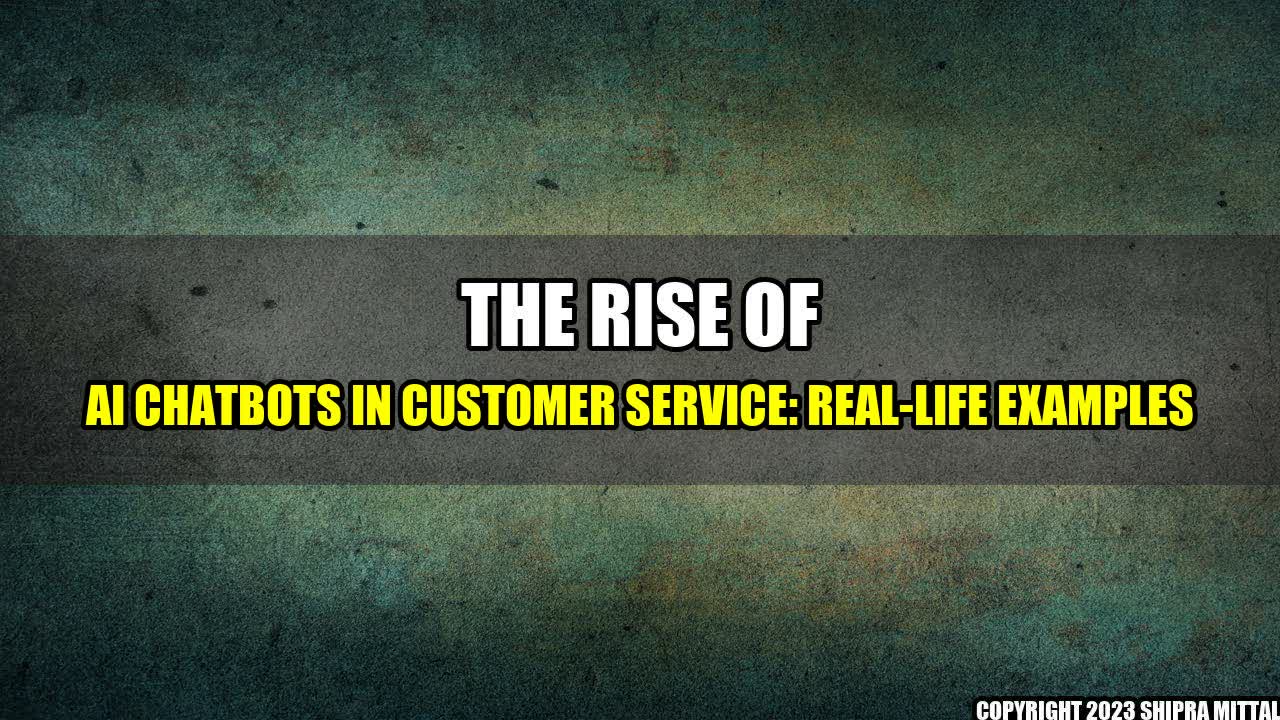Imagine this: You're on a website looking for a specific product, but you can't seem to find it. You try to contact customer service, but the wait time is too long. Frustrated, you decide to leave the website and take your business elsewhere.
This scenario is all too common, but thanks to AI chatbots, it's becoming increasingly rare. AI chatbots are computer programs designed to simulate conversation with human users. They can help customers 24/7, provide personalized responses, and free up human agents to tackle more complex issues.
Real-Life Examples
Many companies are now adopting AI chatbots to improve their customer service. Here are some real-life examples:
- Hopper: This travel app uses an AI chatbot called "Fred" to help customers find the best flight deals.
- Sephora: This beauty retailer uses an AI chatbot on their website and mobile app to assist customers with makeup advice and product recommendations.
- Nike: This athletic apparel company uses an AI chatbot on their Facebook Messenger account to help customers with their orders and returns.
Critical Comments
While AI chatbots have certainly improved customer service in many ways, there are also some potential drawbacks. Here are three critical comments to consider:
- AI chatbots can only handle certain types of issues. For complex or emotional problems, customers may still prefer to speak to a human.
- AI chatbots rely on data and algorithms, which means they can sometimes make mistakes or give inaccurate responses.
- AI chatbots may lead to job losses in the customer service industry, as companies may rely more heavily on automation to cut costs.
Conclusion
The rise of AI chatbots is a trend that shows no signs of slowing down. While there are certainly potential drawbacks, the benefits of implementing AI chatbots in customer service are clear. Companies that invest in this technology are likely to see improved customer satisfaction, increased efficiency, and reduced costs.
